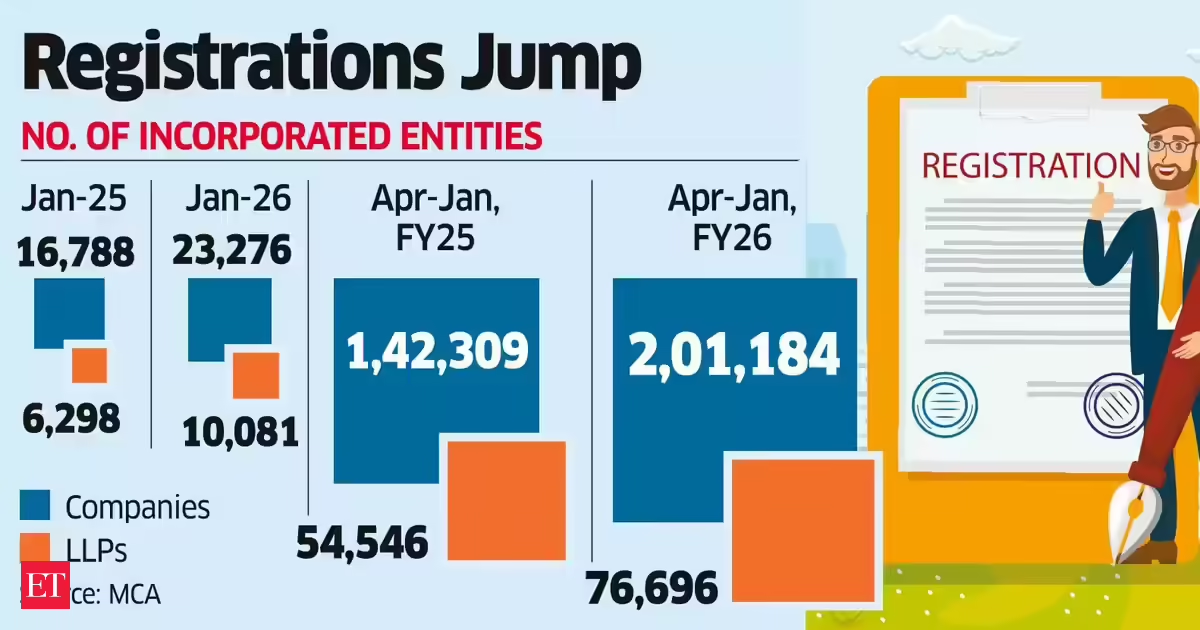Entertainment
Mark Wahlberg and The Rock’s Infamous Crime Thriller Is on Borrowed Time on Free Streaming

Whether as a star or producer, Mark Wahlberg has found consistent success in adapting true stories. 2025 saw him back the Prime Video docuseries Cocaine Quarterback: Signal Caller for the Cartel, an account of Owen Hanson‘s journey from USC football star to imprisoned drug kingpin that earned solid reviews from critics. Before that, in 2024, Arthur the King paired the star with a stray dog as his adventuring companion in an adaptation of Mikael Lindnord‘s memoir. One of his most acclaimed films, The Fighter, similarly succeeded by placing him in the boxing gloves of Micky Ward in a feature inspired by the documentary High on Crack Street: Lost Lives in Lowell However, tapping real accounts has also resulted in real controversy for the Oscar nominee.
Directed by Michael Bay, 2013’s Pain & Gain paired Wahlberg with a DCEU alum, Dwayne Johnson, and a current member of the MCU, Anthony Mackie, to tell a story inspired by the crimes of the Sun Gym gang. The film is based on a series of Miami New Times articles from 1999 and follows Daniel Lugo (Wahlberg) and his accomplices on a quest to fulfill their American dream by extorting wealth from a prominent businessman, played by Tony Shalhoub. Bay and writers Stephen McFeely and Christopher Markus leaned into the bizarre nature of the gang’s scheme and turned it into a crime comedy, earning praise from some for its boldness in flirting with bad taste for laughs, while also sparking criticism for its historical inaccuracies and how it offers a lighter portrayal of the criminals. Shalhoub’s character, who was based on the main victim of the Sun Gym gang’s plan, was also the focus of a defamation lawsuit.
For those interested in watching the film to make their own judgments, time is running out to catch it for free on Pluto TV, as it’s slated to leave the ad-supported platform at the end of the month. Overall, critics and audiences weren’t impressed, giving the film a 49% and a 47% on Rotten Tomatoes, respectively, but Pain & Gain did modestly well at the box office with an $86.2 million haul on a budget of just $26 million. Collider’s review at the time gave it a B+, with Matt Goldberg calling it “an oddly earnest personal statement about being guilty as charged for simply playing into a pre-existing entitlement. It is a loud, obvious, childish, turgid, and grandiose statement wrapped in an insane farce, but it’s somehow endearing nonetheless.”
Wahlberg Is Gearing Up for a Return to Apple TV
Wahlberg has most recently been enjoying plenty of streaming success thanks primarily to the sequel to his megahit action comedy, The Family Plan, on Apple TV. That may continue soon, as he already has another film lined up for the platform — Weekend Warriors. Based on the German sports dramedy Weekend Rebels, which was itself adapting Mirco and Jason von Juterczenka‘s autobiographical book, Wir Wochenendrebellen, it casts Wahlberg as a dad helping his autistic son pick his favorite NBA team by taking him to see all of them in person. It’ll mark the latest effort from writer-director Stephen Chbosky, who is fresh off helming another heartwarming biographical comedy-drama, the Vince Vaughn-starring Nonnas. Filming was underway late last year, but a date has yet to be set for its release.
Pain & Gain is now available to watch for free through the end of the month. Stay tuned here at Collider for more on the biggest films coming to and leaving streaming throughout the year.

- Release Date
-
April 26, 2013
- Runtime
-
130 minutes
Entertainment
Michelle Yeoh shuts down question about U.S. politics after accepting major film festival award
:max_bytes(150000):strip_icc():format(jpeg)/Michelle-Yeoh-berlin-021326-7e4e161948134b23b2ee8b9cc2f9d5dc.jpg)
“Best not to talk about something I don’t know about,” the “Wicked” actress said at the Berlin International Film Festival.
Entertainment
HBO Max Is Removing Jake Gyllenhaal’s Gritty Crime Thriller in 10 Days

Police procedurals have always captivated audiences. From the early days of the genre with shows like Dragnet — which was one of the first of its kind to take the fascination with law enforcement off the pages of quick-to-read novels and onto the screen — the titles have performed well with viewers across multiple age groups. These days, every major network has their own primetime procedural that rakes in the viewership numbers hand over foot. On ABC there’s High Potential and 9-1-1; while NBC has long been the home of the long-running and beloved drama, Law & Order; with CBS finding a sprawling fandom with its three-season running title, Tracker.
On the big screen, police-centered entertainment often swings even harder as the feature-length format allows directors to dig into the drama of it all and drive their stories home. Movies like Antoine Fuqua’s Training Day, Martin Scorsese’s The Departed, and Michael Mann’s Heat have all not only grown a devoted following but also gained acclaim on the awards circuit. With over-the-top characters, high stakes, and a shorter time frame to put it all out there, these movies can be as thrilling as they are emotionally involved, which has helped them stand out as instant classics.
In 2012, David Ayer tried his hand at crafting a gritty police drama with the help of Jake Gyllenhaal and Michael Peña in his film, End of Watch. Centered in South Central Los Angeles, the movie follows two LAPD officers, Brian (Gyllenhaal) and Mike (Peña), who are not only partners but close friends. Together, they patrol the streets, searching for gang members to bust all while staying alive to see their families at the end of the night. Unfortunately for HBO Max subscribers, time is running out to stream the pulse-pounding thriller as it’s set to leave the streamer on February 23.
Who Else Stars in ‘End of Watch’?
In addition to Gyllenhaal and Peña leading the police team, End of Watch also features performances from a standout ensemble that includes David Harbour (Stranger Things), Anna Kendrick (A Simple Favor), Frank Grillo (Tulsa King), America Ferrera (Ugly Betty), Natalie Martinez (Bad Monkey), Kristy Wu (Buffy the Vampire Slayer), Maurice Compte (Dominique), and more.
Known for his work behind a multitude of high-octane features, Ayer is no stranger to police dramas as he worked alongside Fuqua as Training Day’s screenwriter. He also penned the 2003 film, S.W.A.T., and continued to pursue work in the same vein as a director through vehicles such as Harsh Times, Street Kings, Sabotage, and Bright.
Head over to HBO Max before February 23 to stream End of Watch.

- Release Date
-
September 21, 2012
- Runtime
-
109 minutes
Entertainment
Beats Studio Pro headphones are half off at Amazon's Presidents Day sale — plus, you can score Apple AirPods for $99
:max_bytes(150000):strip_icc():format(jpeg)/ew-213-prez-day-headphones-deals-roundup-tout-4d99ad643df44582b56c347d7cb9ecea.jpg)
Sony and Bose headphones have deep discounts, too.
Entertainment
Megan Thee Stallion’s Hot Shots to Kick Off Her 31st Birthday!

Megan Thee Stallion
‘Savage’ Hot Shots To Kick Off Her 31st!!!
Published
It’s Megan Thee Stallion‘s birthday — consider this your official heat warning!
The “Hot Girl” coach never misses when it comes to serving looks, and these bikini snaps prove exactly why she stays winning … confidence isn’t just part of her brand — it is the brand.
From jaw-dropping curves to headline-stealing poses, Megan knows how to shut it down from every angle — and she’s never been shy about giving fans exactly what they came for.
Another year older, still running the game — Happy Birthday, Meg!
Entertainment
Fox’s Ambitious ’80s Horror Series Is Perfect for Fantasy Fans

Horror movies were booming in the 1980s thanks to the slasher fad. However, finding the genre on TV was a different story. The Twilight Zone came back for a few years in the decade, and if you were a kid of a certain age, CBS’ Beauty and the Beast could be a bit creepy, but if you wanted straight-up horror, one of the only options out there was Werewolf. It debuted on the rather new Fox network in 1987, and although it ended all too soon, after two short seasons, Werewolf left its mark as a scary series ahead of its time.
What Was ‘Werewolf’ About?
The Fox Broadcasting Company was formed in 1986 as the fourth major network behind ABC, CBS, and NBC. It struggled in the beginning, with few successes, like Married… with Children, which meant Fox took more risks. One of those with the series Werewolf. Premiering as a two-hour event in July 1987, Werewolf had an interesting formula, combining the winning television concepts of The Incredible Hulk and The Fugitive into one.
Werewolf focused on a young man named Eric Cord, played by John J. York, best known to horror fans at the time for his small role in Night of the Creeps. He’s our hero, even though Cord is a werewolf. Like The Incredible Hulk‘s Bruce Banner (Bill Bixby), Cord is stuck by a curse he doesn’t want, which transforms him into a terrifying monster. Having been attacked by a werewolf, Cord now becomes one, leading him on a pursuit to find the lead lycanthrope. If he can kill him, Cord will be free. Playing the villainous role of Janos Skorzeny was the star of The Rifleman, Chuck Connors (horror fans will remember his creepy role in Tourist Trap), in one of his last television parts before his death in 1992.
Werewolf tells two all-encompassing stories. It’s not only about Cord trying to find Skorzeny, but it is also about the hero, just like in The Fugitive, being tracked down for a murder he didn’t commit, this time by a bounty hunter played by Lance LeGault named Joe Rogan (yes, that’s his real character’s name). But how can Werewolf create a sympathetic hero if he’s also turning into a monster who kills people? Werewolf found a way around that. Whenever Eric Cord transforms, it’s bad guys who meet their end.
‘Werewolf’ Was Cancelled After Two Seasons
Werewolf had a premise which might have seemed over-the-top in 1987, but it did have something going for it. The series was created by Frank Lupo, the same man who co-created hit 80s shows like The A-Team and Hunter. Werewolf, however, had a major problem right out of the gate. It’s big star, Chuck Connors, barely showed up, only appearing in four of its 29 episodes. Alan Cole, the script editor for the show, wrote about what happened on his blog. A few days after starting working on Werewolf, Lupo showed up in Cole’s office asking him to kill off the Skorzeny character. Cole couldn’t understand why, because “Connors had done a damned good job of portraying an evil, scary, villain with no moral compunctions whatsoever.” As it turned out, though, Connors wanted a new deal before the first episode even aired, angering Lupo.
This led to the TV icon mostly being written out of the series, with someone else made the villain. That could have led to disaster, yet Werewolf remained a fun series. It had a likable, good-looking lead, two compelling stories, and plenty of scary thrills. So, how did the werewolf look? After all, this was TV in the 80s, and you can imagine the monster looking hilariously bad on a struggling new network. No worries there, because the titular monster was created by none other than Rick Baker, the practical effects genius who had already created two famous werewolves for Michael Jackson‘s “Thriller” video and An American Werewolf in London, the latter of which resulted in him winning the first ever Academy Award for Best Makeup.
Eric Cord isn’t the only werewolf in the series. There are plenty of bad ones too, who have no qualms about killing the innocent. Baker’s effects brought them to life, with the creatures mostly walking upright like a human. Thanks to Baker, they hold up with the best of werewolf movies, and the attack scenes are easily the best part of the series. This is because, as Cole revealed, there were three werewolf costumes, and cost about $500,000 each.
Werewolf was canceled just 13 months after it debuted without an ending that wrapped things up. Fans never had the resolution of learning if Eric Cord would kill the head lycanthrope and have his curse removed. As disappointing as this was, it also left viewers forever wanting more, making it unforgettable for those who watched it. It was a flawed series, hindered by the actions of an aging TV star, but saved by the passion behind its effects. If you were a kid in the 1980s, there’s a good chance Werewolf was your introduction to horror.
Entertainment
Olympic Store Sells Out of T-Shirt Promoting Adolf Hitler’s 1936 Games
A controversial shirt depicting the 1936 Berlin Games, used by former Nazi party leader Adolf Hitler to promote white supremacy, has sold out from the official 2026 Winter Olympics store.
“While we of course acknowledge the historical issues of ‘Nazi propaganda’ related to the Berlin 1936 Olympic Games, we must also remember that the Games in Berlin saw 4,483 athletes from 49 countries compete in 149 medal events,” an International Olympic Committee (IOC) spokesperson told The Athletic in an interview published on Friday, February 13.
“Many of them stunned the world with their athletic achievements, including [American sprinter] Jesse Owens,” the spokesperson continued, confirming that the t-shirt depicting the Olympic rings and an overly-muscular man wearing a wreath on his head had sold out and was not just pulled from the proverbial shelves.
“The historical context of these Games is further explained at the Olympic Museum in Lausanne,” the spokesperson added. “For the 1936 edition, the number of T-shirts produced and sold by the IOC is limited, which is why they are currently sold out.”
The official 1936 Berlin Games shirt is emboldened with the event’s official poster featuring the rings and male figure, available for $47. As The Athletic notes, the Games were used by Hitler and the Nazis to “promote their antisemitic and racist regime.”
“While it is true that Owens winning four gold medals is one of the 1936 Games’ most important stories, it’s most obvious legacy is a warning as to what can happen if you let dictators use the major sporting events to promote hateful political ideologies, such as the Nazi myth of Aryan racial superiority,” The Athletic’s Matt Slater wrote on Friday.

General view of the Brandenburge Gate as Germany hosts the XI Olympic Games in August of 1936 in Berlin, Germany. Getty Images
The controversy surrounding the t-shirt comes amid a rise in antisemitism, fascism and violent acts of white supremacy. According to the Anti-Defamation League (ADL), antisemitic incidents in the U.S. rose by 361 percent following the October 7 terrorist attack in Israel. According to the February 2025 State of Antisemitism in America 2024 report, 33 percent of American Jews said they have been the personal target of antisemitism, in-person or virtually, at least once over the past year.
The 2026 Winter Olympics, held in Milan, Italy, has not been untouched by controversy as athletes from around the world compete for gold, silver and bronze. Vladyslav Heraskevych, a Ukrainian skeleton competitor, was disqualified from competition after he refused to change his helmet. (The athlete’s helmet highlighted fellow athletes who have died during Russia’s ongoing war in Ukraine.)
Heraskevych appealed the decision, which was ultimately denied by the Court of Arbitration for Sport (CAS).
After French ice dancers Laurence Fournier Beaudry and Guillame Cizeron won the gold over Americans Madison Chock and Evan Bates, fans called for an investigation into French judge Jezebel Dabouis, who favorited Beaudry, 33, and Cizeron, 31, in the free dance competition by a margin so high it made the difference between gold and silver.
Because Dabouis’ scores differed so greatly from her fellow judges, speculation quickly grew that she was not capable of being objective while scoring the competition.
“It is normal for there to be a range of scores given by different judges in any panel and a number of mechanisms are used to mitigate these variations,” the International Skating Union, figure skating’s governing body, said in a statement released on Thursday, February 12, sticking by Dabouis. “The ISU has full confidence in the scores given and remains completely committed to fairness.”
Several athletes have also come under fire for publicly admitting that it feels “complicated” to represent the United States during the country’s political turmoil.
“U.S. Olympic Skier, Hunter Hess, a real Loser, says he doesn’t represent his Country in the current WInter Olympics,” President Donald Trump wrote via social media on Sunday, February 8. “If that’s the case, he shouldn’t have tried out for the Team, and it’s too bad he’s on it. Very hard to root for someone like this, MAKE AMERICA GREAT AGAIN!”
Hess, an American freestyle halfpipe skier, admitted during a February 6 press conference that he has “mixed emotions” representing “the U.S. right now.”
“It’s a little hard,” he continued. “There’s obviously a lot going on that I’m not the biggest fan of. … Just because I’m wearing the flag doesn’t mean I represent everything that’s going on in the U.S.”
Figure skater Amber Glenn revealed she received death threats after voicing her political beliefs while competing at the Games.
“When I chose to utilize one of the amazing things about the United States of America (freedom of Speech) to convey how I feel as an athlete competing for Team USA in a troubling time for many Americans, I am not receiving a scary amount of hate/threats for simply using my voice when asked about how I feel,” Glenn, 26, wrote via Instagram on February 7. “I did anticipate this, but I am disappointed by it.”
Entertainment
Free Streaming Fans Are Making an Iconic “Splatter Horror” Cult Classic Their New Weekend Binge

The 2000s saw a major horror boom with major blockbuster productions and several small-budget movies. Final Destination was released in that decade and has since gained a cult following, with the latest installment, Final Destination: Bloodlines, reviving what was considered a dead franchise. In 2003, another cult favorite horror franchise was born with the release of the first Wrong Turn movie. It was nothing special and was panned by critics for being derivative. However, it achieved moderate success at the box office before being released on DVD for home viewing. The franchise cultivated a fanbase in subsequent releases despite the lack of critical acclaim. 23 years later, Wrong Turn is available to stream for free on Tubi in the U.S., and it’s once again making a mark.
Data from FlixPatrol shows that the film has seen significant success on Tubi in recent days, peaking at number four on the streaming service’s top ten movies. Wrong Turn is wrestling for the top position with movies like Taken 3, Madea Goes to Jail, and The Longest Yard. The slasher film launched the format that others in the franchise would follow: Set in the backwoods of America, a group of people find themselves in the wrong part of the country after taking a wrong turn. They encounter cannibalistic inbred mutants who hunt them individually for sport and food. There are seven movies in the franchise, with the latest one being released in 2021.
Is ‘Wrong Turn’ a Good Movie?
Andre Dellamorte reviewed the Blu-Ray version for Collider in 2009 and noted that the film felt uninspired. However, he lauded it for delivering on all the tropes. “The story follows the ‘Generic horror film blueprint’ to its end — the lower-credited characters die while the remaining cast winds up in a standoff against the mutants. Rob Schmitt — best known for his indie work on pictures like Crime and Punishment in Suburbia — directs the film with a certain speed, which is for the best, as it’s as derivative as it sounds,” Dellamorte wrote. He added:
“Because the film delivers the gore and all the tropes of a mutant hillbilly movie, it’s hard to hate it, though, and the gore is the most fascinating element of the movie—horror films are like musicals in that the plot is generally just there to set up the fancy numbers, and in this case those thrills are delivered as one character gets garroted, and another gets an axe through the mouth – allowing the rest of the body to fall off.”
You can watch Wrong Turn on Pluto in the U.S.

- Release Date
-
May 30, 2003
- Runtime
-
84 minutes
- Director
-
Rob Schmidt
- Writers
-
Alan B. McElroy
- Sequel(s)
-
Wrong Turn 2: Dead End, Wrong Turn 3: Left For Dead, Wrong Turn 4: Bloody Beginnings (2011), Wrong Turn 5: Bloodlines, Wrong Turn 6: Last Resort (2014)
- Franchise(s)
-
wrong turn
Entertainment
Korean Makeup on Amazon

Glass Skin, No Filter Needed
VIRAL KOREAN BEAUTY
Worth The Hype
Published
TMZ may collect a share of sales or other compensation from links on this page.
There’s no doubt that Korea is way ahead of the game when it comes to skincare and makeup so if your current routine isn’t giving glass skin, it’s time to switch things up.
Known for products that’ll give you fresh and flawless finishes, these viral favorites actually live up to the hype. Whether you’re going for gorgeous, glazed lips or a skin-perfecting foundation, K-beauty is where it’s at — and it’s all on Amazon.
TMZ CHEAT SHEET: KOREAN BEAUTY PICKS
Peripera Ink the Velvet Lip Tint
If you’re looking to get that perfect soft velvet finish on your lips, the Peripera Ink the Velvet Lip Tint is exactly what you need. This creamy mousse tint delivers a longwear stain effect and smooths lip lines for a blurred, airbrushed finish.
It’s available in a wide range of vivid pigments, from nude and rose to coral and red tones, all of which are suitable for all-day wear.
Fwee Blurry Pudding Pot & Keychain Set
The Fwee Blurry Pudding Pot & Keychain Set is not your typical matte product. This fluffy formula softly blurs and smooths, giving your lips and cheeks a natural flush of color and a dreamy airbrushed finish.
And with its intense pigmentation, a little goes a long way. Choose from over 20 different shades and then bring it with you on the go with the included keychain for your bag.
High shine? Yes please. The Fwee 3D Voluming Gloss’ syrupy formulation is designed to give you the juicy, plump, and glazed lips of your dreams.
It glides on smoothly, stays lightweight and lasts for hours. With tons of different shades, each available in two different pigment tiers, you can get exactly the look you’re after, whether that’s a subtle, sheer swipe or a richer, vivid payoff.
TIRTIR Mask Fit Red Cushion Foundation
You may recognize the TIRTIR Mask Fit Red Cushion Foundation from some totally viral videos on TikTok … and for good reason. This hydrating foundation was designed to deliver full coverage with a natural, semi-matte finish.
Its lightweight formula smooths and evens skin tone, blurs pores, and conceals blemishes effortlessly while keeping your skin nourished and comfortable all day. With up to 72 hours of flawless, fade-resistant coverage, you’ll get breathable, non-cakey texture for flawless skin.
Add a little sparkle to your shadow with this Dasique Eye Shadow Palette. This nine shade kit includes everything you need for every step of your eye makeup routine, whether you’re looking for a base, need some extra pigmentation or are topping off your look with pearlescent finishes. Available in a variety of smooth and velvety hues, the Violet Knit palette is all about cool-toned sophistication and is a must-have in your makeup bag.
Sign up for Amazon Prime to get the best deals!
All prices subject to change.
Entertainment
Lindsey Vonn Shares Update After 4th Surgery Following Olympics Crash
Lindsey Vonn is not asking for any sympathy after undergoing her fourth surgery following her catastrophic 2026 Winter Olympics crash.
“Surgery went well today!” Thankfully I will be able to finally go back to the US! Once I’m back I will give you more updates and info about my injury… But until then, as I sit here in my bed reflecting, I have a few thoughts I’d like to share…” Vonn, 41, wrote via Instagram on Saturday, February 14, along with a video of the Olympian skiing.
“I have been reading a lot of messages and comments saying that what has happened to me makes them sad,” Vonn continued. “Please, don’t be sad. Empathy, love and support I welcome with an open heart, but please not sadness and sympathy. I hope instead it gives you strength to keep fighting, because that is what I am doing and that is what I will continue to do. Always.”
Vonn added, “When I think back on my crash, I didn’t stand in the starting gate unaware of the potential consequences. I knew what I was doing. I chose to take a risk. Every skier in that starting gate took the same risk. Because even if you are the strongest person in the world, the mountain always holds the cards.”
Team USA supporters and fans across the world have been following Vonn’s road to the 2026 Winter Olympics after she announced her return to professional skiing. (Vonn retired in 2019 following the World Championships in Sweden, but announced her comeback in 2024.)
While competing at a World Cup race in Switzerland on January 30, Vonn tore her ACL completely — just nine days before Olympic competition.
“After extensive consultations with doctors, intense therapy, physical tests as well as skiing today, I have determined I am capable of competing in the Olympic Downhill on Sunday,” Vonn said on February 1, noting she planned to race even without her ACL in tact. “Of course I will still need to do one training run, as is required to race on Sunday, but… I am confident in my body’s ability to perform. Despite my injuries my knee is stable, I do not have swelling and my muscles are firing and reacting as they should.”
Vonn took the slope on Sunday, February 8, for her women’s downhill run. Unfortunately, tragedy struck 13 seconds into her run when she crashed and was eventually airlifted from the course to an Italian hospital. Vonn subsequently “underwent an orthopedic operation to stabilize a fracture reported in her left leg” and was “treated by a multidisciplinary team,” a statement released by the Ca’ Foncello hospital said at the time.
“I was willing to risk and push and sacrifice for something I knew I was absolutely capable of doing,” Vonn continued on Saturday. “I will always take the risk of crashing while giving it my all, rather not ski to my potential and have regret. I never want to cross [a] finish line and say, ‘what if?’ And to be perfectly honest, I was stronger physically in that moment than I have been often in the past. Certainly stronger than I was when I ended [my] career in 2019 where I got a bronze medal in the World Championships.”
Vonn added, “And mentally… Mentally I was perfect. Clear, focused, hungry, aggressive yet completely calm… just as I had practiced over the past few months when I was on the podium in every downhill this season. 2 wins and leading the standings… that was all a test to prepare me for the Olympics. Mentally, I was more ready than I had ever been.”
Vonn concluded her post by pointing out that “just because I was ready” for the 2026 Winter Olympics “didn’t guarantee me anything.”
“Nothing in life is guaranteed. That’s the gamble of chasing your dreams, you might fall but if you don’t try you’ll never know,” she added. “So please, don’t feel sad. The ride was worth the fall. When I close my eyes at night I don’t have regrets and the love I have for skiing remains. I am still looking forward to the moment when I can stand on the top of the mountain once more. And I will.”
Entertainment
College Football Player Parker Sutherland Dead at 18

Parker Sutherland — a college football standout at the University of Northern Iowa — has died … the school announced Saturday.
The college freshman passed away Saturday morning — just 10 days before his birthday — the school announced … declining to provide a cause of death out of respect for the family.
UNI mourns the passing of football student-athlete Parker Sutherland
📰 https://t.co/e2ATEa5haG#EverLoyal | #1UNI pic.twitter.com/nMwwcje9eu
— UNI Football (@UNIFootball) February 14, 2026
@UNIFootball
UNI head coach Todd Stepsis said his heart goes out to the Sutherlands … adding the young man “embodied everything we look for in a UNI Football Panther.” He highlighted Parker’s character, humility, toughness, and love of others.
Coach Stepsis finished his statement with, “While I’m saddened that our time together was short, we will celebrate the bright light that he brought to our football team for the rest of our lives.”
Worth noting … the Des Moines Register reports first responders were called to a UNI athletics facility regarding an “unconscious/fainting (non-trauma)” report. It’s unclear if that’s connected to Sutherland’s passing.
Parker appeared in four games for UNI during his freshman season. He was a three-sport athlete at Iowa City High School.
Parker was 18.
RIP
-

 Politics7 days ago
Politics7 days agoWhy Israel is blocking foreign journalists from entering
-

 Business7 days ago
Business7 days agoLLP registrations cross 10,000 mark for first time in Jan
-

 Sports3 days ago
Sports3 days agoBig Tech enters cricket ecosystem as ICC partners Google ahead of T20 WC | T20 World Cup 2026
-

 NewsBeat6 days ago
NewsBeat6 days agoMia Brookes misses out on Winter Olympics medal in snowboard big air
-

 Business6 days ago
Business6 days agoCostco introduces fresh batch of new bakery and frozen foods: report
-

 Tech4 days ago
Tech4 days agoSpaceX’s mighty Starship rocket enters final testing for 12th flight
-

 NewsBeat6 days ago
NewsBeat6 days agoWinter Olympics 2026: Team GB’s Mia Brookes through to snowboard big air final, and curling pair beat Italy
-

 Sports6 days ago
Sports6 days agoBenjamin Karl strips clothes celebrating snowboard gold medal at Olympics
-

 Tech7 hours ago
Tech7 hours agoLuxman Enters Its Second Century with the D-100 SACD Player and L-100 Integrated Amplifier
-

 Video2 days ago
Video2 days agoThe Final Warning: XRP Is Entering The Chaos Zone
-

 Politics7 days ago
Politics7 days agoThe Health Dangers Of Browning Your Food
-

 Business7 days ago
Business7 days agoJulius Baer CEO calls for Swiss public register of rogue bankers to protect reputation
-
![Heathrow has said passenger numbers were 60% lower in November than before the coronavirus pandemic and there were “high cancellations” among business travellers concerned about being trapped overseas for Christmas as Omicron spreads. The UK’s largest airport said the government’s travel restrictions had dealt a fresh blow to travel confidence and predicted it was likely to take several years for passenger numbers to return to pre-pandemic levels. This week ministers said passengers arriving in the UK would have to take a pre-departure Covid test, as well as a post-flight test, because of fears about the spread of the new variant. “[The] high level of cancellations by business travellers concerned about being trapped overseas because of pre-departure testing shows the potential harm to the economy of travel restrictions,” the airport said in an update. Heathrow said the drop in traveller confidence owing to the new travel restrictions had negated the benefit of reopening the all-important corridor to North America for business and holiday travel last month. Eleven African countries have been added to the government’s red list, requiring travellers to quarantine before reuniting with families. “By allowing Brits to isolate at home, ministers can make sure they are reunited with their loved ones this Christmas,” said John Holland-Kaye, the chief executive of Heathrow. “It would send a strong signal that restrictions on travel will be removed as soon as safely possible to give passengers the confidence to book for 2022, opening up thousands of new jobs for local people at Heathrow. Let’s reunite families for Christmas.” Heathrow said that if the government could safely signal that restrictions would be lifted soon, then employers at Heathrow would have the confidence to hire thousands of staff in anticipation of a boost in business next summer. The airport is expecting a slow start to 2022, finishing next year with about 45 million passengers – just over half of pre-pandemic levels. This week Tui, Europe’s largest package holiday operator, said it expected bookings for next summer to bounce back to 2019 levels. However, Heathrow said on Friday not to expect the aviation industry to recover for several years. “We do not expect that international travel will recover to 2019 levels until at least all travel restrictions (including testing) are removed from all the markets that we serve, at both ends of the route, and there is no risk of new restrictions, such as quarantine, being imposed,” the airport said.](https://wordupnews.com/wp-content/uploads/2026/02/shutterstock_1100012546-scaled-400x240.jpg)
![Heathrow has said passenger numbers were 60% lower in November than before the coronavirus pandemic and there were “high cancellations” among business travellers concerned about being trapped overseas for Christmas as Omicron spreads. The UK’s largest airport said the government’s travel restrictions had dealt a fresh blow to travel confidence and predicted it was likely to take several years for passenger numbers to return to pre-pandemic levels. This week ministers said passengers arriving in the UK would have to take a pre-departure Covid test, as well as a post-flight test, because of fears about the spread of the new variant. “[The] high level of cancellations by business travellers concerned about being trapped overseas because of pre-departure testing shows the potential harm to the economy of travel restrictions,” the airport said in an update. Heathrow said the drop in traveller confidence owing to the new travel restrictions had negated the benefit of reopening the all-important corridor to North America for business and holiday travel last month. Eleven African countries have been added to the government’s red list, requiring travellers to quarantine before reuniting with families. “By allowing Brits to isolate at home, ministers can make sure they are reunited with their loved ones this Christmas,” said John Holland-Kaye, the chief executive of Heathrow. “It would send a strong signal that restrictions on travel will be removed as soon as safely possible to give passengers the confidence to book for 2022, opening up thousands of new jobs for local people at Heathrow. Let’s reunite families for Christmas.” Heathrow said that if the government could safely signal that restrictions would be lifted soon, then employers at Heathrow would have the confidence to hire thousands of staff in anticipation of a boost in business next summer. The airport is expecting a slow start to 2022, finishing next year with about 45 million passengers – just over half of pre-pandemic levels. This week Tui, Europe’s largest package holiday operator, said it expected bookings for next summer to bounce back to 2019 levels. However, Heathrow said on Friday not to expect the aviation industry to recover for several years. “We do not expect that international travel will recover to 2019 levels until at least all travel restrictions (including testing) are removed from all the markets that we serve, at both ends of the route, and there is no risk of new restrictions, such as quarantine, being imposed,” the airport said.](https://wordupnews.com/wp-content/uploads/2026/02/shutterstock_1100012546-scaled-80x80.jpg) Business6 days ago
Business6 days agoWeight-loss jabs threaten Greggs’ growth, analysts warn
-

 Crypto World3 days ago
Crypto World3 days agoPippin (PIPPIN) Enters Crypto’s Top 100 Club After Soaring 30% in a Day: More Room for Growth?
-

 NewsBeat6 days ago
NewsBeat6 days agoResidents say city high street with ‘boarded up’ shops ‘could be better’
-

 Crypto World1 day ago
Crypto World1 day agoBhutan’s Bitcoin sales enter third straight week with $6.7M BTC offload
-

 Crypto World5 days ago
Crypto World5 days agoU.S. BTC ETFs register back-to-back inflows for first time in a month
-

 Crypto World5 days ago
Crypto World5 days agoBlockchain.com wins UK registration nearly four years after abandoning FCA process
-

 Video3 days ago
Video3 days agoPrepare: We Are Entering Phase 3 Of The Investing Cycle
-
Sports6 days ago
Kirk Cousins Officially Enters the Vikings’ Offseason Puzzle





















